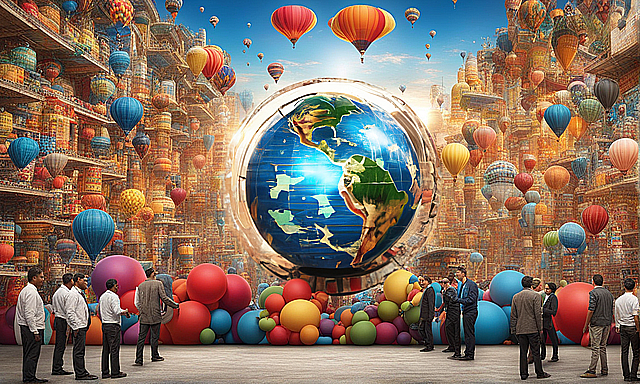allureaestheticsazflagstaff.com – In the late 20th and early 21st centuries, the world has witnessed an unprecedented increase in the interconnectedness of economies and cultures, a phenomenon commonly referred to as globalization. This process has been driven by advancements in technology, transportation, and communication, as well as by the liberalization of trade and investment policies. The rise of globalization has profound implications for the way people live, work, and interact, reshaping economies and cultures around the globe.
The Drivers of Globalization
Technological Advancements
The digital revolution has been a key driver of globalization. The internet and mobile technologies have made it possible for people to communicate instantly across the world, facilitating the exchange of ideas, goods, and services. Social media platforms and online marketplaces have further broken down geographical barriers, connecting consumers and producers from different corners of the globe.
Transportation Innovations
Improvements in transportation, including the efficiency of air travel and the expansion of shipping routes, have made it easier and cheaper to move goods and people across long distances. This has led to the globalization of supply chains, with companies sourcing materials and labor from various countries to produce goods that are then sold worldwide.
Economic Policies
The liberalization of trade and investment policies has been another significant factor in the rise of globalization. The reduction of tariffs and trade barriers has encouraged cross-border trade and investment, leading to the integration of national economies into a global marketplace. International agreements and organizations, such as the World Trade Organization (WTO), have played a crucial role in promoting these policies.
The Impact of Globalization on Economies
Economic Growth and Development
Globalization has contributed to economic growth and development by providing countries with access to larger markets, new technologies, and foreign investment. Developing countries, in particular, have benefited from the opportunity to export goods and attract investment, which has helped to lift millions out of poverty.
Job Creation and Displacement
While globalization has led to the creation of new jobs, particularly in industries related to trade and services, it has also resulted in the displacement of workers in sectors that cannot compete with cheaper foreign labor or more efficient production methods. This has led to economic disparities and social tensions in some regions.
The Impact of Globalization on Cultures
Cultural Exchange and Fusion
Globalization has facilitated the exchange of cultural practices, ideas, and values, leading to a richer, more diverse global culture. The fusion of different cultural elements has given rise to new forms of art, music, cuisine, and fashion, enriching the cultural landscape worldwide.
Homogenization vs. Localization
On the other hand, the spread of global media and the dominance of certain cultural products, such as Hollywood movies and American fast food, have raised concerns about cultural homogenization. Critics argue that the dominance of Western culture threatens local traditions and identities. However, there is also a growing trend of localization, where global products and ideas are adapted to fit local tastes and preferences, preserving cultural diversity.
Challenges and Criticisms
Despite its benefits, globalization has faced criticism and challenges. Issues such as the exploitation of workers in developing countries, environmental degradation, and the erosion of national sovereignty have sparked debates about the sustainability and fairness of the global economic system.
Conclusion
The rise of globalization has transformed the world into a more interconnected and interdependent place. While it has brought about significant economic growth and cultural exchange, it has also presented challenges that need to be addressed. As the world continues to globalize, finding a balance between the benefits of integration and the preservation of local identities and environments will be crucial for ensuring a sustainable and equitable future for all.
